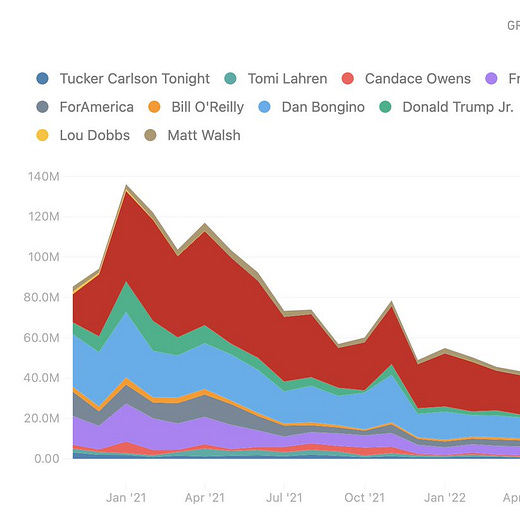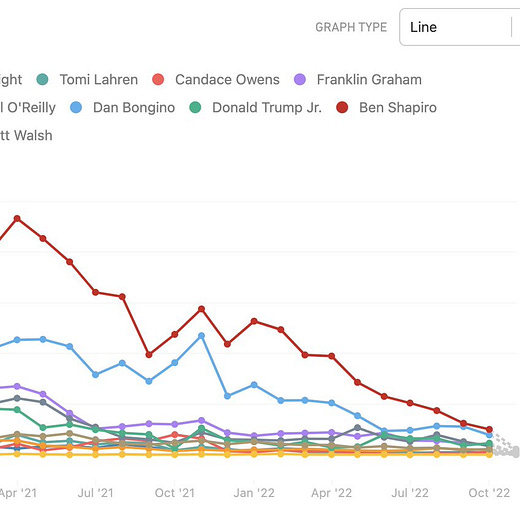Has Facebook dialed down the conservative outrage machine?
Right-wing mega pages on the social media site are receiving less engagement than ever before
On Election Day 2020, conservative media superstar Dan Bongino was one of the top content publishers on Facebook - a social media platform that historically prioritized serving engaging, clickbaity content to its users’ feeds. At the time, Bongino was averaging around 8 million interactions (likes, shares, comments) each week on his posts, which typically railed against Democrats or COVID restrictions.
Flash forward to Election Day 2022, and Bongino is lucky to average one-tenth of that engagement in a one-week period, according to Crowdtangle. This phenomenon is not unique to Dan Bongino - it’s happening to other large conservative pages too. The monthly total post engagement of some of the biggest Facebook pages on the Right, from Tucker Carlson to Ben Shapiro, has dramatically decreased over the past two years:
Mainstream media pages have been hit too, and liberal mega-pages have seen some decline as well, albeit much less consistently, and most markedly since July 2022.
It’s unclear what’s driving this trend. Social media companies like Meta are notoriously protective of their algorithmic secret sauce, and any moves to down-rank content in the political realm are often met with accusations of political bias. That said, it’s unlikely that these pages and publishers are responsible for their own declining engagement - there has to be something that has changed with the platform or social media use more generally.
We recently published a brief report on political candidates’ Facebook engagement in the midterms, and their total interaction numbers seemed quite low compared to viral posts from non-political accounts. Meta is aggressively trying to compete with TikTok, which historically has tried to keep its platform free of political content. By slowly and steadily decreasing the number of political clickbait posts in users’ feeds, they can fill the white space with lots more addictive TikTok-style videos to keep users swiping, scrolling, and watching.
After we shared this data on Twitter, one platform integrity expert and former Facebook staffer noted: “I have a feeling that a big story coming out of this election is going to be where did the eyeballs move to online?”
She’s right - wherever these eyeballs end up moving to, it will most assuredly be a less transparent, more distributed platform. While Facebook has searchable tools like Crowdtangle and publicly archives its advertising, TikTok (and many other platforms) do not.






